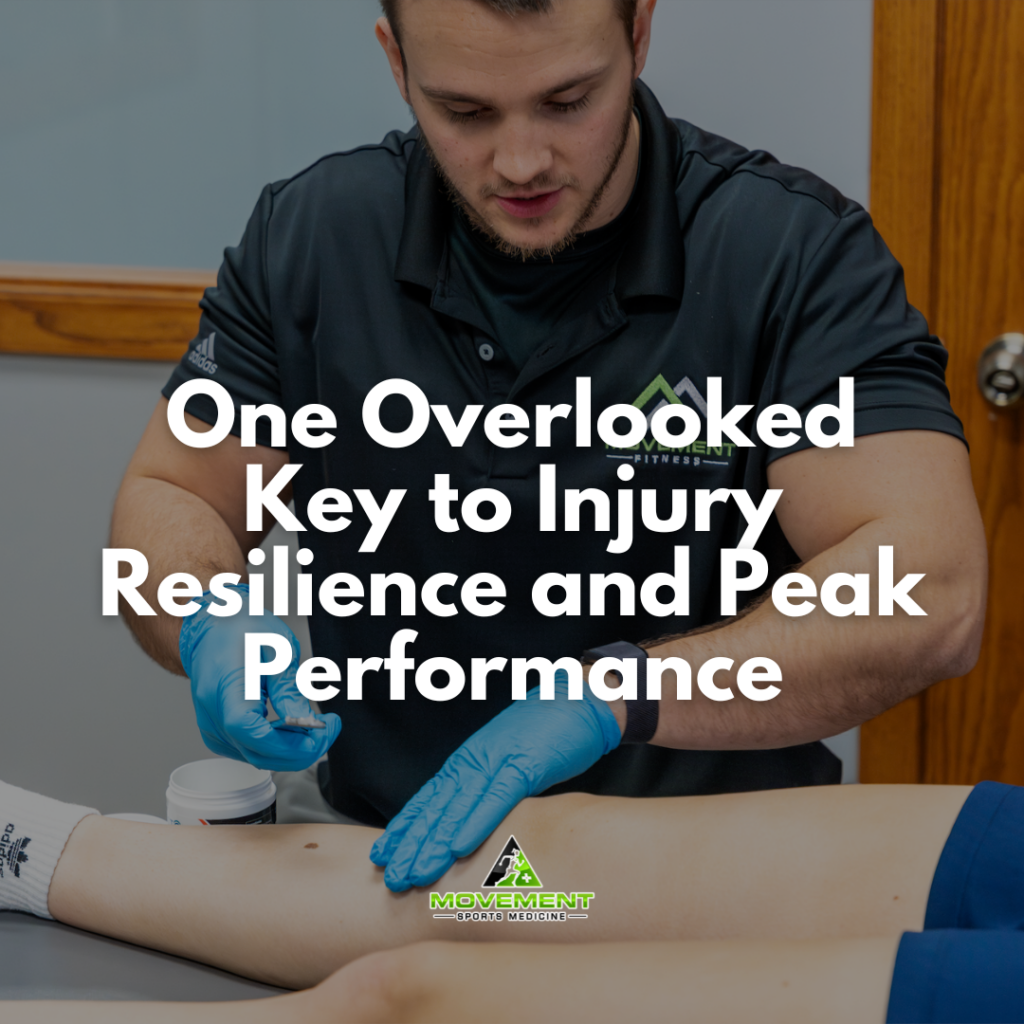Hydration: The Overlooked Key to Injury Resilience and Peak Performance
Hydrating isn’t just about water, and it isn’t just about quenching thirst. It’s about cellular health, tissue elasticity, joint lubrication, and metabolic efficiency. Whether you’re on the field, in the weight room, or coming back from an injury, your hydration status plays a critical role in how your body functions, adapts, and withstands stress.
Why Hydration Matters for Injury Prevention
Every tissue in the body from tendons and ligaments to bones and intervertebral discs relies on proper hydration to stay resilient under load. Here’s how being even mildly dehydrated increases injury risk:
- Reduced joint lubrication → leading to increased wear-and-tear
- Stiff, less elastic muscles and tendons → more prone to pulls or strain.
- Impaired circulation → slower delivery of nutrients to healing tissue
- Poor neuromuscular control → making you slower to react or stabilize under stress
Even a 2% drop in hydration can lead to early fatigue, decreased coordination, and poor tissue recovery, a dangerous combination in high-speed or high-impact sports.
Hydration and Athletic Performance
Hydration directly affects your:
- Power output
- Mental clarity and focus
- Reaction time
- Thermoregulation (body temperature control)
In fact, during intense training or competition, athletes can lose 1-3 liters of fluid per hour through sweat especially in hot or humid conditions. If that fluid isn’t replaced consistently, performance drops fast.
How Much Water Do Athletes Actually Need?
Forget the old “8 glasses a day” rule. Athletes need far more especially if training daily or in multiple sessions.
General Guideline:
0.6 – 0.7 ounces per pound of body weight per day
Example: A 170 lb athlete should aim for 102–119 oz per day, baseline.
Add More If:
- You’re training for more than 60 minutes
- You’re sweating heavily
- You’re in a hot or dry environment
- You’re recovering from an injury (tissue repair needs fluid!)
🧪 How to Know If You’re Hydrated
Here are 3 quick checks:
Urine Color Test
Pale yellow = ✅
Dark yellow or amber = 🚫 You’re behind
Morning Body Weight Check
Weigh yourself before and after intense workouts
For every 1 lb lost, drink 16–20 oz of water to rehydrate
Skin Test
Pinch the skin on the back of your hand
If it stays elevated, you’re likely dehydrated
Hydration Hacks: Tips to Stay Ahead of the Curve
- Front-load your day with 16–20 oz of water within 30 minutes of waking up
- Use electrolytes (especially sodium) during long or hot training sessions
- Keep a 1-liter bottle with time markers and aim to finish 2–3 per day
- Add citrus or berries if plain water bores you (bonus: natural antioxidants)
- Set phone alarms or use a hydration app to stay consistent
- Don’t rely on thirst, it’s a late signal that you’re already dehydrated
Hydration isn’t flashy, but it’s fundamental. Athletes who stay consistently hydrated recover faster, perform better, and stay on the field longer. If you’re dealing with chronic tightness, slow recovery, or a nagging injury that just won’t go away, don’t overlook this simple fix.
Hydration isn’t just about today’s workout. It’s about long-term durability. Stack the odds in your favor by making water intake part of your weekly routine — just like lifting, mobility, or skill work.
Need help dialing in your recovery game plan?
At Movement Sports Medicine, we help athletes build high-performance systems from hydration to strength to return-to-sport. Schedule a session and let’s optimize every variable that keeps you in the game
Be Great Today,
Mason



